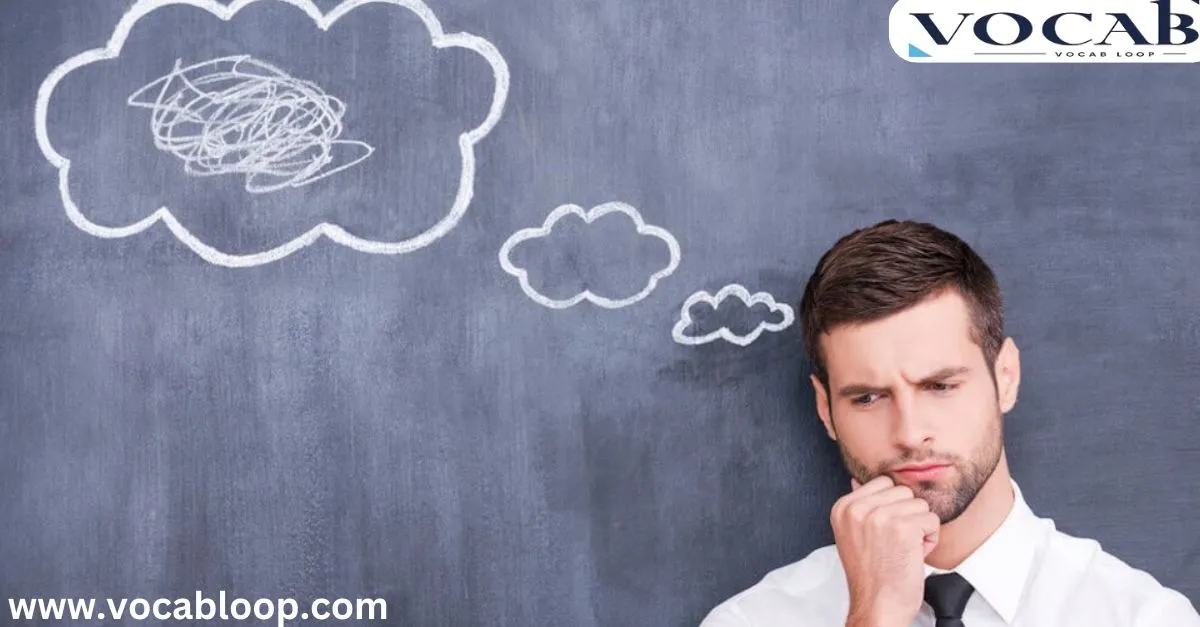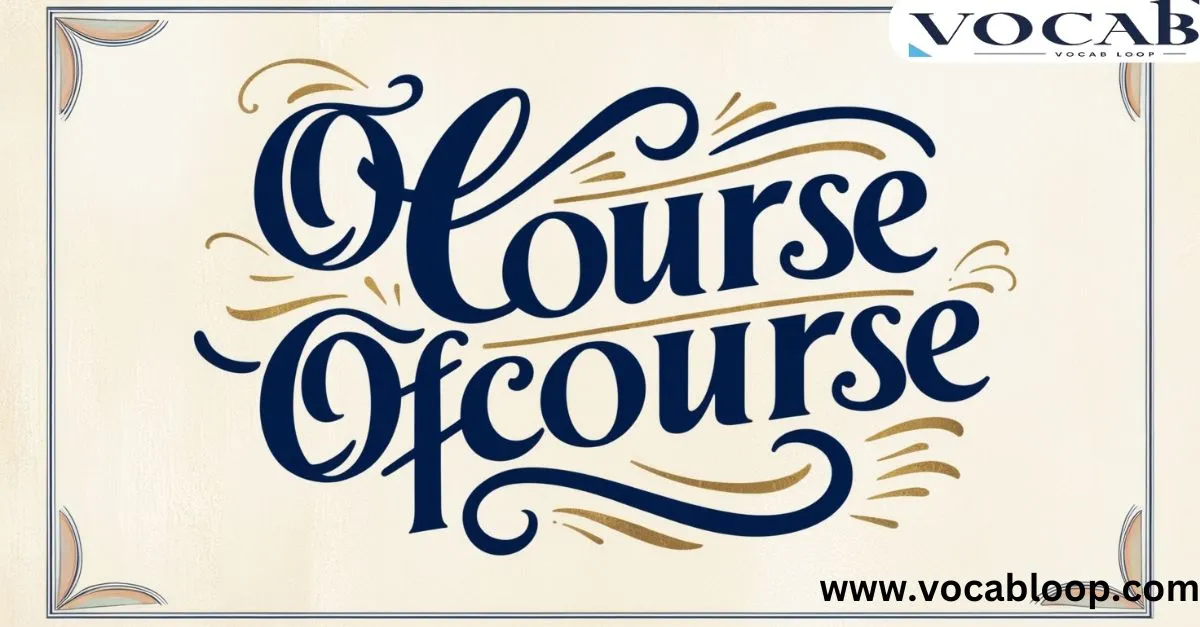Navigating the sometimes-tricky waters of the English language can be challenging, even for the most seasoned writers. One common point of confusion is the distinction between the phrases “of course” and “ofcourse.”
While they may sound similar, these two expressions have very different meanings and implications. Understanding the proper usage is crucial for clear, professional communication.
Why is There Confusion?

The similarity in sound between “of” and “off” can lead some people to inadvertently combine the words into the incorrect spelling of “ofcourse.” Additionally, the tendency to treat frequently used terms as a single unit can also contribute to this common misspelling.
In the digital age, the prevalence of informal communication like texting has only exacerbated the issue, as shorthand and slang become more widely adopted.
Of Course:
Is this word correct? Absolutely.
“Of course” is a well-established two-word phrase that means “certainly” or “without doubt.” It is used to express that something is obvious or expected. For example, “Of course I’ll attend your birthday party!” or “The sun rises in the east, of course.”
Definition
The phrase “of course” is an adverbial expression that conveys the idea that a statement or action is obvious, natural, or to be expected.
Meaning
When used correctly, “of course” indicates that the speaker considers the referenced point to be self-evident or a given. It suggests a sense of certainty or agreement.
Usage
“Of course” can be used as a standalone phrase to affirm something, or it can be incorporated into a longer sentence to emphasize the obvious nature of a statement.
Ofcourse:
Is this word correct? No,
“ofcourse” is not a valid word in the English language. It is simply an incorrect spelling of the two-word phrase “of course.” This misspelling should be avoided in all forms of written communication.
Definition
There is no official definition for the term “ofcourse,” as it is not a recognized word.
Meaning
The intended meaning of “ofcourse” is unclear, as it does not convey the same sense of certainty or expectation as the proper phrase “of course.”
Usage
“Ofcourse” should never be used, as it is an improper spelling that will be perceived as a mistake. The correct phrase to use is “of course.”
Pronunciation of “Of Course” or “Ofcourse”
The proper pronunciation of the phrase “of course” involves clearly separating the two words, with a distinct pause between them. In contrast, attempting to pronounce “ofcourse” as a single word would sound incorrect and unnatural.
Is there a space between “ofcourse”?
No, there should always be a space between the two words “of course.” The incorrect spelling “ofcourse” removes this space, which is grammatically incorrect.
Which is Correct: “Of Course” or “Ofcourse?”

The correct spelling is “of course.” “Ofcourse” is an improper, misspelled variation that should be avoided in all forms of writing.
When and How to Use “Of Course”
The phrase “of course” is appropriate to use in a variety of contexts. It can serve as an affirmative response, indicating certainty or agreement, such as “Of course I’ll help you with that.” It can also be incorporated into a sentence to emphasize that something is obvious or expected, for example, “Of course, the meeting is scheduled for 2 pm.”
Is it professional to say “of course”?
Yes, using the phrase “of course” is considered professional and polite. It is appropriate to employ in both business and formal settings, as it conveys a tone of agreement and accommodation.
Is it right to say “of course not?”
Absolutely. The phrase “of course not” is a common and acceptable way to express disagreement or denial. For instance, “Of course not, I would never do something like that.”
“Of Course” vs. “Ofcourse” in the UK vs. the US
In both the United Kingdom and the United States, the correct spelling is “of course.” The variant “ofcourse” is considered a misspelling in all English-speaking regions.
Common Mistakes: Why People Misspell “Of Course”
There are a few key reasons why the phrase “of course” is frequently misspelled as “ofcourse”:
- Similarity in Sound: The words “of” and “off” have a similar sound, leading some to inadvertently combine them.
- Tendency to Compound: When two words are commonly used together, there is a natural inclination to treat them as a single unit.
- Influence of Digital Communication: The prevalence of informal, abbreviated language in texting and online chat has reinforced the “ofcourse” misspelling.
Grammar Rules: When to Use “Of Course”
The phrase “of course” is used correctly in the following grammatical contexts:
- As an adverbial expression to indicate that something is obvious or expected
- Within a sentence to convey certainty, agreement, or the natural order of things
For example, “Of course, we’ll need to factor in the cost of materials.” or “I’ll be there on time, of course.”
The Role of “Of Course” in Polite Expressions
Using the phrase “of course” can help soften the tone of a request or response, making it sound more agreeable and accommodating. For instance, “Of course I can help you with that project” or “Of course, I’d be happy to attend the meeting.”
Using “Of Course” to Indicate the Obvious
Employing “of course” is an effective way to emphasize that a statement or conclusion is self-evident or requires no further explanation. For example, “Of course, the sun rises in the east” or “Of course, I’ll need to submit my expense report by the end of the week.”
How to Remember the Correct Usage of “Of Course”

To avoid the common mistake of spelling “of course” as “ofcourse,” try using mnemonic devices or memory tricks. For example, remember that there is a distinct space between the two words, or associate “of course” with the phrase “without a doubt.”
The Evolution of “Of Course” in Digital Communication
As digital communication has become more prevalent, the incorrect spelling “ofcourse” has become increasingly common, especially in informal settings like text messages and social media. It is important to maintain proper spelling, even in casual online interactions, to uphold a professional and credible tone.
Mastering “Of Course” in Writing
Developing a consistent habit of using “of course” correctly takes practice. When proofreading your written work, be vigilant in identifying and correcting any instances of the misspelled “ofcourse.” With time and attention to detail, the proper usage will become second nature.
The Psychology Behind “Of Course”
The phrase “of course” can convey a range of psychological undertones, including confidence, agreement, politeness, and a sense of the obvious. Using it appropriately can help build rapport and demonstrate a thoughtful, accommodating demeanor.
Origins of “Of Course” and “Ofcourse”
The two-word phrase “of course” has been in use in the English language for centuries, tracing back to the 16th century. The incorrect variant “ofcourse” likely emerged more recently as a misspelling influenced by the similarity in sound between “of” and “off.”
Synonyms

Synonyms for “of course”:
- Certainly
- Absolutely
- Naturally
- Sure
- Clearly
“Ofcourse” has no valid synonyms, as it is not a recognized word.
Examples in Sentences
Correct usage of “of course”:
- Of course I’ll attend the company picnic.
- The sun rises in the east, of course.
- Of course, we’ll need to factor in the cost of supplies.
- I’d be happy to help you with that project, of course.
- The meeting is scheduled for 2 pm, of course.
Incorrect usage of “ofcourse”:
- Ofcourse I’ll be there on time.
- The teacher assigned the homework, ofcourse.
- Ofcourse, the deadline is this Friday.
- Ofcourse I can lend you my notes for the lecture.
- The new hire starts work next week, ofcourse.
FAQs
What is the difference between “of course” and “ofcourse”?
“Of course” is the correct two-word phrase that means “certainly” or “without doubt.” “Ofcourse” is an improper, misspelled version that should be avoided.
Is “ofcourse” a word?
No, “ofcourse” is not a recognized word in the English language. It is simply an incorrect spelling of the proper phrase “of course.”
When should I use “of course” in my writing?
Use “of course” to express that something is obvious, expected, or certain. It can be used as a standalone affirmative response or incorporated into a sentence.
Is it unprofessional to say “of course”?
No, using the phrase “of course” is considered professional and polite. It is appropriate to use in both formal and informal settings.
How do I remember the proper spelling of “of course”?
Try associating “of course” with the idea of something being “without a doubt” or use mnemonic devices that emphasize the distinct separation between the two words.
Conclusion
The correct usage of “of course” versus the incorrect “ofcourse” is an important step in developing strong written communication skills. By understanding the definition, meaning, and proper grammatical application of this common phrase.
You can convey a tone of confidence, politeness, and professionalism in your writing. Remember – “of course” is the only valid spelling, so be sure to use it accurately and consistently.

Alex Hormozi is a seasoned blogger at Vocab Loop, known for his deep insights into language, vocabulary, and grammar. With years of experience in writing, Alex shares practical tips and effective strategies to help readers improve their linguistic skills and enhance their writing abilities.

